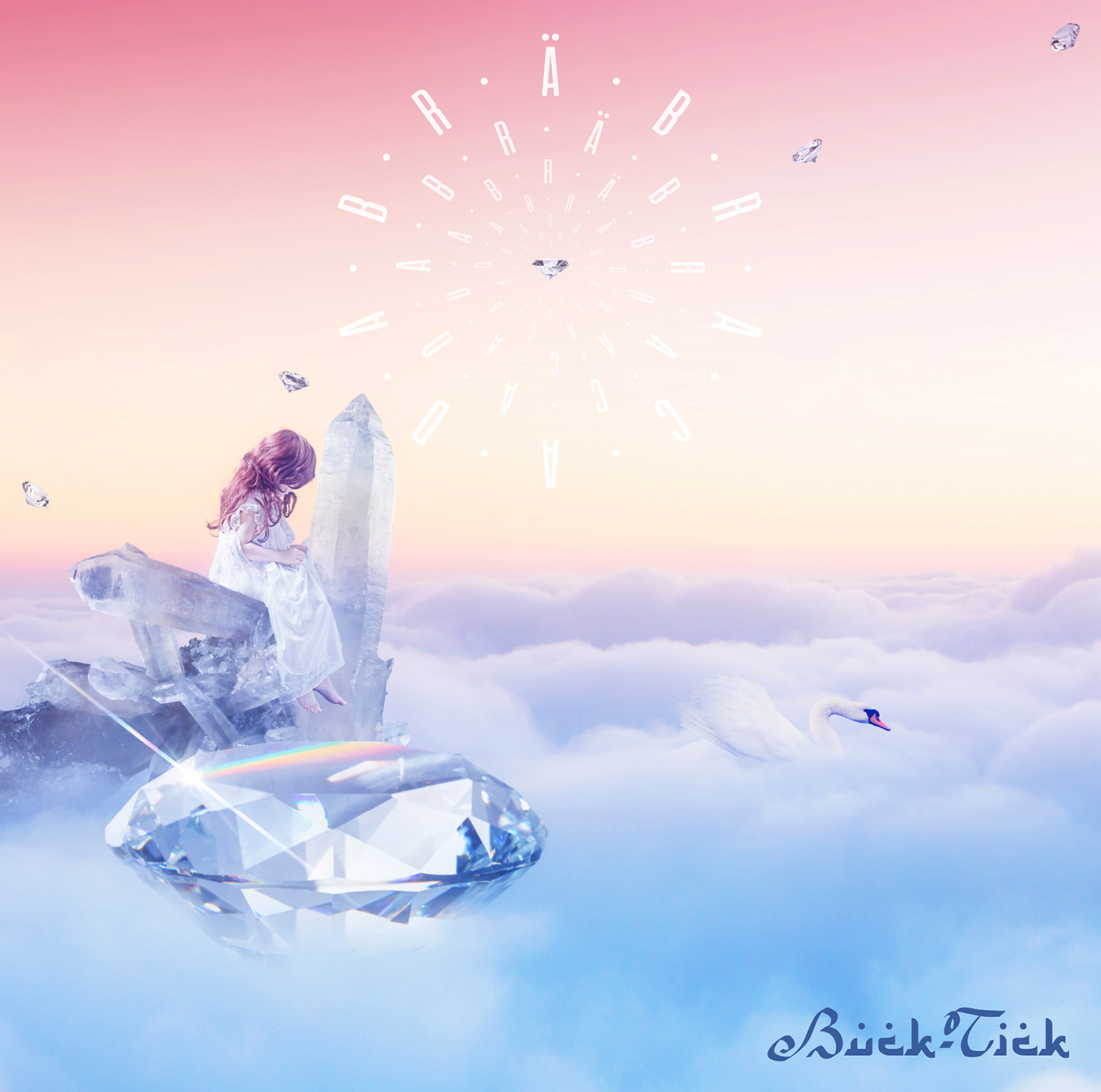
2020.09.21 | Victor Entertainment
ABRACADABRA
Dream Dancing Mime
Words by Sakurai Atsushi
Music By Imai Hisashi
Japanese
知っていたんだね
まさか おまえまで
愛なんて幻想
お伽話と
瞳潤ませて
仔猫のふりして
あんな事をして
知っていたんだね
存じ上げ¹ていたわ²
周知の事実よ
まさか本気だと
思っていらして
背中のジッパを
指で弾いたら
お代³を頂戴⁴
時間が無いのよ
時計の針⁵が
針が 針が
あなたを刺す
悩殺⁶ 秒殺⁷
さようなら
愛しているんだ
やめて馬鹿馬鹿しい
この世は地獄さ
ちょっと付いていけない
瞳潤ませて
仔猫のふりして
お代を頂戴
時間が無いのよ
真っ赤なヒールが
ヒールが ヒールが
あなたを刺す
悩殺⁶ 秒殺⁷
時計の針⁵が
針が 針が
あなたを刺す
悩殺⁶ 秒殺⁷
さようなら
朝が来るぜ
こんな世界に
ちょっと眩しい
カーテン閉めて
死んでみるか
真っ赤なヒールが
ヒールが ヒールが
コツコツと
Romaji
By: Yoshiyuki
Shitteitan dane
Masaka omae made
Ai nante gensou
Otogibanashi to
Hitomi urumasete
Koneko no furishite
Anna koto wo shite
Shitteitan dane
Zonji agete ita wa
Shuuchi no jijitsu yo
Masaka honki da to
omotte irashite
Senaka no jippa wo
yubi wo hiitara
Odai wo choudai
Jikan ga nai no yo
Tokei no hari ga
Hari ga Hari ga
Anata wo sasu
Nousatsu Byousatsu
Sayonara
Aishite irun da
Yamete bakabakashii
Kono yo wa jigoku sa
Chotto tsuite ikenai
Hitomi urumasete
Koneko no furi shite
Odai wo choudai
Jikan ga nai no yo
Makka na hiiru ga
Hiiru ga Hiiru ga
Anata wo sasu
Nousatsu Byousatsu
Tokei no hari ga
Hari ga Hari ga
Anata wo sasu
Nousatsu Byousatsu
Sayonara
Asa ga kuru ze
Konna sekai ni
Chotto mabushii
Kaaten shimete
Shinde miru ka
Makka na hiiru ga
Hiiru ga Hiiru ga
Kotsukotsu to
English
By: Yoshiyuki
You know it, don’t you
You, of all people
What an illusion love is
A mere fairy tale
Get misty eyed for me
Be my kitten
You do all those things
Despite knowing this, right?
Of course, I’m aware, my dear
It’s just common sense
You sound as if
you truly thought I was serious
If your finger plays with
the zipper on my back
Please make sure you pay up
I don’t have time for this
These hands⁵ on the clock
These hands These hands
Pierces into you
Seducing⁶ you Killing⁷ you
Goodbye
I’m in love with you
Stop it, you’re being ridiculous
This world is hell
I’m sorry, I can’t follow
Get misty eyed for me
Be my kitten
Please pay up
I don’t have time for this
These bright red heels of mine
Heels of mine Heels of mine
Pierces into you
Seducing⁶ you Killing⁷ you
These hands⁵ on the clock
These hands These hands
Pierces into you
Seducing⁶ you Killing⁷ you
Goodbye
Morning is coming
Coming to this world of ours
It’s a little glaring
Close the curtains?
Want to try dying?
These bright red heels of mine
Heels of mine Heels of mine
Tap-tapping on⁸
Notes:
¹ 存じ上げる (zonji ageru) is a humble way of saying 分かる (wakaru) or 知る (shiru), i.e. I know. The more common humble phrase merely uses 存じ (zonji), e.g. ご存知ですか (go zonji desuka – roughly “do you know”).
All of this belongs to formal speak, but the humble form is used when the speaker is talking to someone of a higher rank/trying to convey respect for the other party. Adding 上げる (ageru) to 存じ (zonji) actually increases the amount of respect conveyed. So if we’re ranking these phrases, 存じ上げる is a more respectful/humble version of 存じ, but less commonly used.
² The ending of a sentence/statement with わ (wa) is typical for women, most times, older women like your mom or something. In general, when a person ends their sentences with わ, it adds a feminine flavour to their speech and implies an air of softness.
³ Adding an お a noun as seen in お代 (odai) is used to add a formal/respectful tone to one’s speech. Note that this is not a one-fits-all rule.
⁴ 頂戴 (choudai) is a humble verb for receiving something from someone of a higher status than your own. But it’s not used exclusively for formal occasions, as seen in this song. It can be used as a word that encourages others to give you things or do something in a friendly way by throwing in a little formality with the tease/joke.
⁵ The hands of a clock are referred to as 針 (hari) in Japanese which literally translates to “needle”. Which makes more sense in the next line which has 刺す(sasu) i.e. to pierce, stab, jab, basically stick something into someone.
⁶ 悩殺 (nousatsu) is used specifically with regards to seduction. It can be translated as anything in that regard from glamour and hex, to bewitch and entrance, to mere fascination. Generally, an irresistible charm.
⁷ 秒殺 (byousatsu) literally means, “instantaneous kill”. Normally used to describe winning/losing in the blink of an eye, like a one-hit-KO.
⁸ コツコツ is an onomatopoeia of sorts which is also an adjective which means “steadily” or “working/doing something with effort”, like working hard or tirelessly. This translation choice combines both definitions. (Clicking steadily? Life goes on style?)
Comments:
You might’ve guessed from watching live performances of this song that it has 2 characters in it, one male and one female. The formatting of the lyrics in the album’s booklet used a black ♠ to denote the male character’s part and a red ♥ to denote the female character’s part. Instead of using these symbols here, which would make the page look messy, I used colours instead.
Blue text refer to the male character, while maroon text refer to the female character. Bold text refer to lyrics that are for both characters.
—Yoshiyuki





































